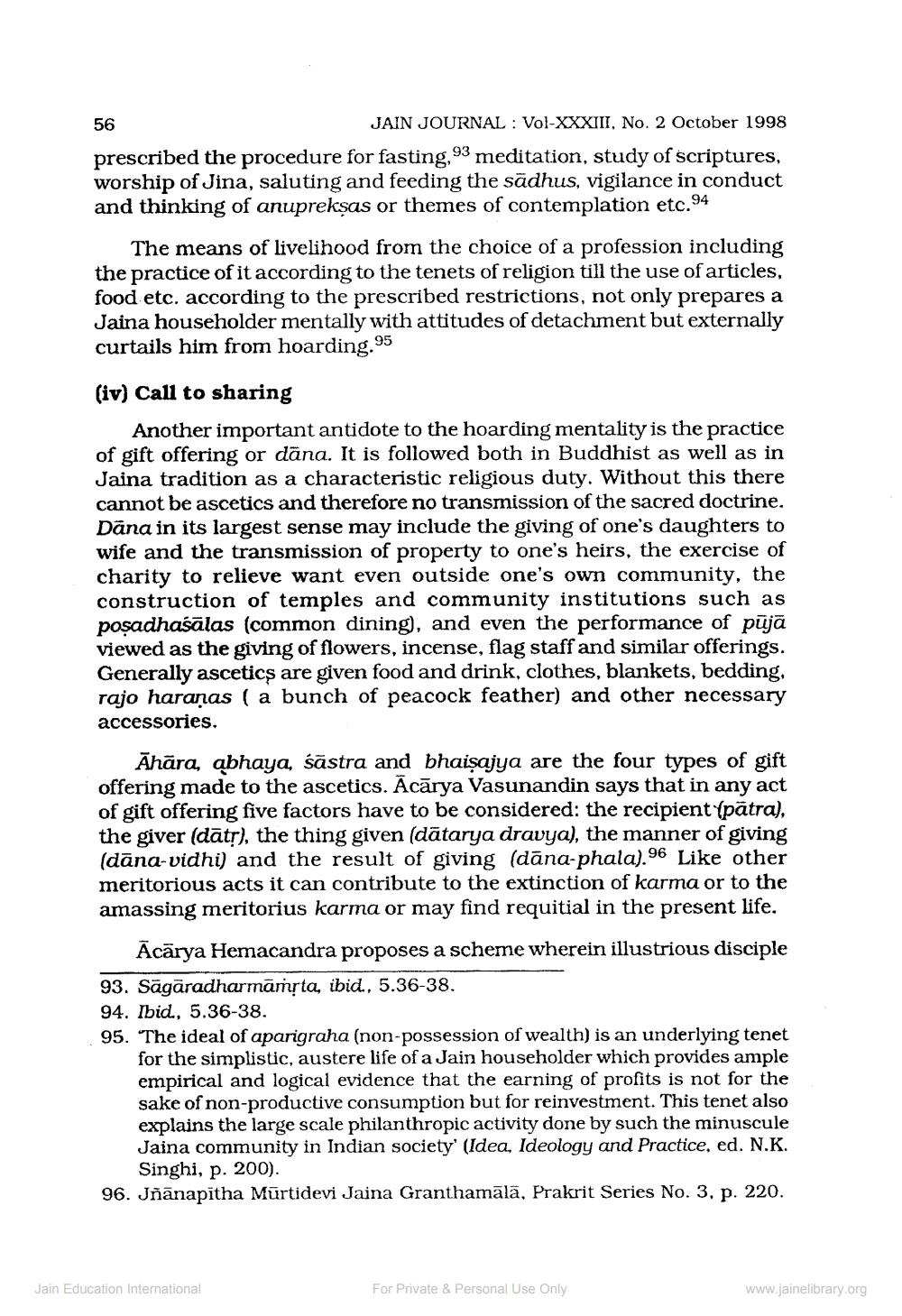________________
56
JAIN JOURNAL : Vol-XXXIII, No. 2 October 1998 prescribed the procedure for fasting, 93 meditation, study of scriptures, worship of Jina, saluting and feeding the sadhus, vigilance in conduct and thinking of anupreksas or themes of contemplation etc. 94
The means of livelihood from the choice of a profession including the practice of it according to the tenets of religion till the use of articles, food etc. according to the prescribed restrictions, not only prepares a Jaina householder mentally with attitudes of detachment but externally curtails him from hoarding.95
(iv) Call to sharing
Another important antidote to the hoarding mentality is the practice of gift offering or dāna. It is followed both in Buddhist as well as in Jaina tradition as a characteristic religious duty. Without this there cannot be ascetics and therefore no transmission of the sacred doctrine. Dana in its largest sense may include the giving of one's daughters to wife and the transmission of property to one's heirs, the exercise of charity to relieve want even outside one's own community, the construction of temples and community institutions such as posadhasālas (common dining), and even the performance of pūjā viewed as the giving of flowers, incense, flag staff and similar offerings. Generally ascetics are given food and drink, clothes, blankets, bedding, rajo harañas ( a bunch of peacock feather) and other necessary accessories.
Ahāra, abhaya, śāstra and bhaisajya are the four types of gift offering made to the ascetics. Ācārya Vasunandin says that in any act of gift offering five factors have to be considered: the recipient (patra), the giver (dāts), the thing given (dātarya dravya), the manner of giving (dāna-vidhi) and the result of giving (dāna-phala).96 Like other meritorious acts it can contribute to the extinction of karma or to the amassing meritorius karma or may find requitial in the present life.
Acārya Hemacandra proposes a scheme wherein illustrious disciple
93. Sāgāradharmāmsta, ibid. 5.36-38, 94. Ibid., 5.36-38. 95. The ideal of aparigraha (non-possession of wealth) is an underlying tenet
for the simplistic, austere life of a Jain householder which provides ample empirical and logical evidence that the earning of profits is not for the sake of non-productive consumption but for reinvestment. This tenet also explains the large scale philanthropic activity done by such the minuscule Jaina community in Indian society (Idea, Ideology and Practice, ed. N.K.
Singhi, p. 200). 96. Jñānapitha Mürtidevi Jaina Granthamālā, Prakrit Series No. 3. p. 220.
Jain Education International
For Private & Personal Use Only
www.jainelibrary.org




